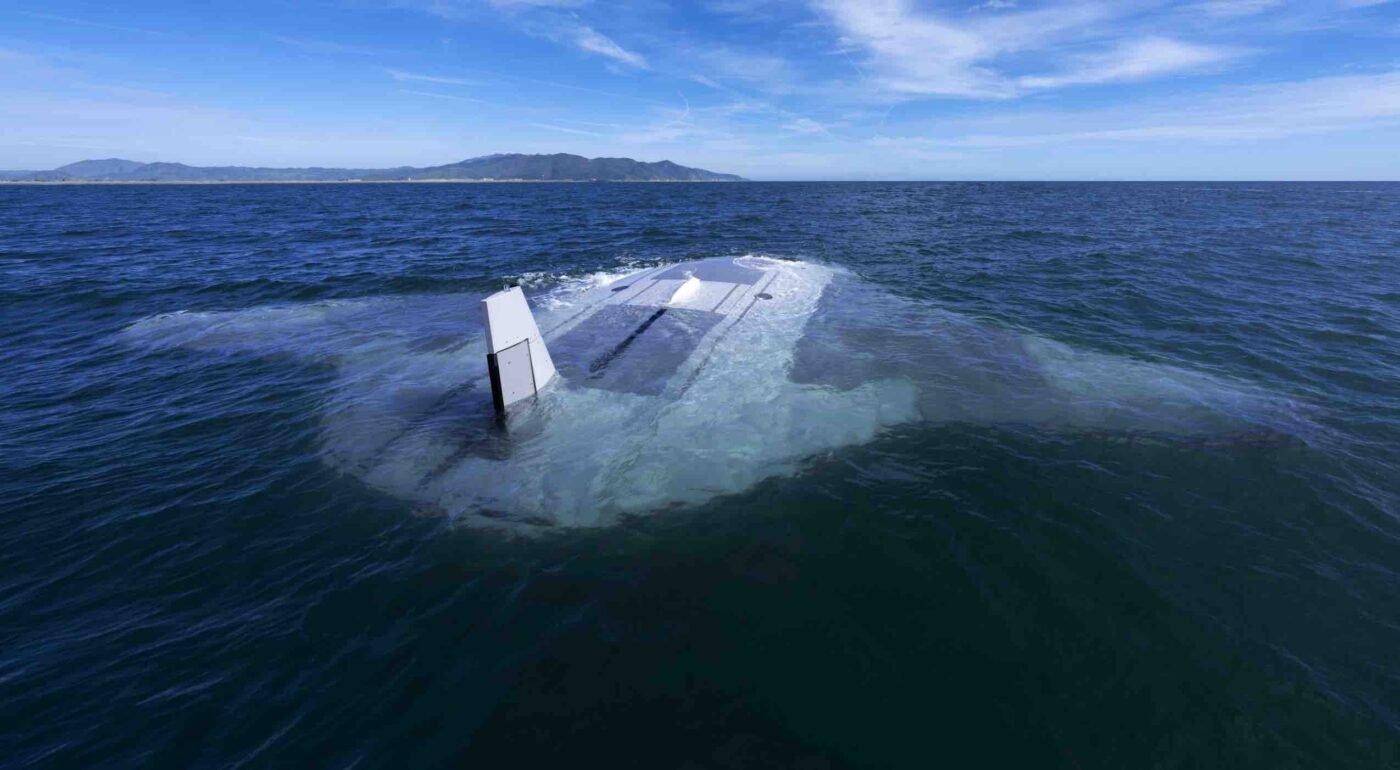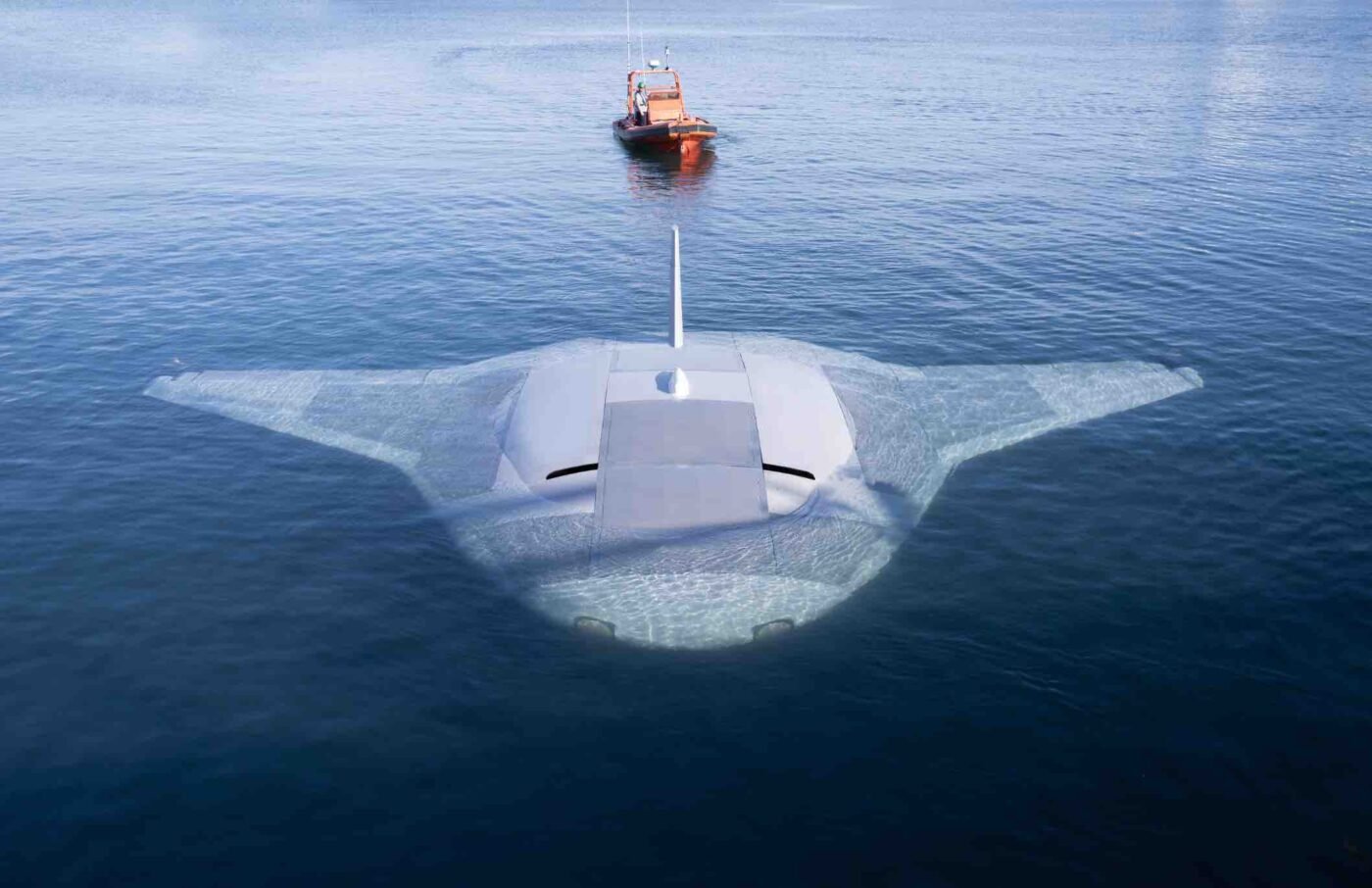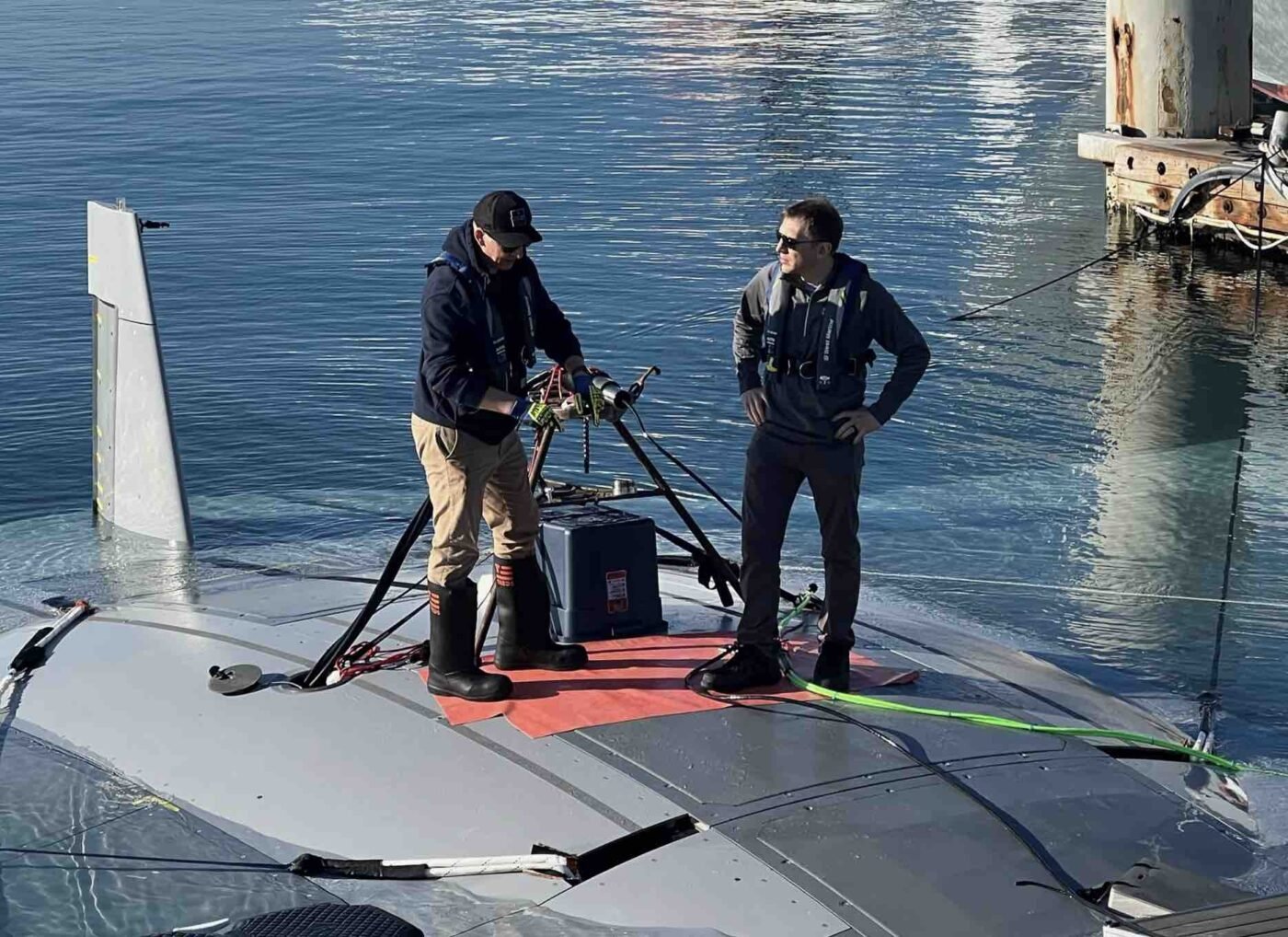
Posted on 05/07/2024 6:48:50 AM PDT by Red Badger

(Credit: Northrop Grumman/DARPA)
The Manta Ray prototype uncrewed underwater vehicle (UUV) has successfully completed initial full-scale tests in an ocean environment, according to an update that appeared at the website of the Defense Advanced Research Project Agency (DARPA).
Built by aerospace and defense technology giants Northrop Grumman, Manta Ray’s first ocean tests were carried out off the coast of Southern California between February and March 2024, featuring submerged operations that allowed each of the new UUV’s modes of control and propulsion to be engaged.
An extra-large glider UUV designed to carry out long-range and long-duration missions in undersea environments, DARPA’s Manta Ray is a formidable new system that inherently limits the need for human logistics on-site. The first images of the completed full-scale Manta Ray prototype were released by Northrop Grumman on April 8, 2024.
Designed with both an appearance and performance that mimic mantas, a species of devil ray well known for the massive size they often grow to reach, the next-generation UUV features a range of technologies that combine energy efficiency and increased payload capacity with optimum propulsion capabilities for undersea operations, offering freedom of operation for traditional sailing vessels and providing data that will advance undersea energy harvesting capabilities.

DARPA’s Manta Ray, built by Northrop Grumman, is seen during testing earlier in 2024 off the Southern California Coast (Credit: Northrop Grumman/DARPA).
Manta Ray is designed to be dispatched in subsections to its deployment locations, where it is fully assembled on-site. In keeping with its intended assembly parameters, the Manta Ray prototype used in tests earlier this year was delivered by Northrop Grumman directly from its building site in Maryland to California, where it was quickly completed upon arrival.
The rapid delivery and assembly in advance of testing demonstrated Manta Ray’s ability to be deployed quickly while also conserving space at naval facilities.
Dr. Kyle Woerner, DARPA program manager for Manta Ray, said the full-scale tests allowed the DARPA team to gauge the new underwater vehicle’s capabilities while ensuring that the new UUV and its rapid assembly would allow for smooth operations from the moment each of its modular subsectional components is unboxed.
“The combination of cross-country modular transportation, in-field assembly, and subsequent deployment demonstrates a first-of-kind capability for an extra-large UUV,” Woerner said in a statement.

Above: Dr. Kyle Woerner, right, with a Northrop Grumman team member during testing with the Manta Ray UUV (Credit: Northrop Grumman).
“Shipping the vehicle directly to its intended area of operation conserves energy that the vehicle would otherwise expend during transit,” Woerner said in a statement, adding that following its deployment, Manta Ray can utilize buoyancy-propelled gliding capabilities that allow it to conserve energy while moving through the water.
Additionally, Manta Ray possesses multiple bays capable of storing payloads of various sizes, which allows it to meet the demands of several different mission types.
Ultimately, Manta Ray’s goal is to aid in developing next-generation long-duration and extended-range UUVs suited for a variety of missions and capable of carrying payloads that will altogether provide unmatched capabilities for future U.S. Navy operations.
According to DARPA, full-scale tests involving the UUV’s energy harvesting system are currently underway with Manta Ray performer PacMar Technologies.
~~~~~~~~~~~~~~~~~~~~~~~~~~~~~~~~~~~~~~~~~~~~~~~~~~~~~~~~~~~~~~~~~
Micah Hanks is the Editor-in-Chief and Co-Founder of The Debrief. He can be reached by email at micah@thedebrief.org. Follow his work at micahhanks.com and on X: @MicahHanks.
I put together a model of the Seaview!......................
This is all cool and everything, I’m not against this type of research, meantime Russia is using cheap and deadly drones by in mass to take out Ukrainian armor relatively easily.
A bunch of goat herders in flip flops are using drones to attack ships in the Red Sea with $1000 drones who we have to shoot down with million-dollar missiles.
The spectacular drones like this one are great but where are the cheap expendable drones that other countries are using effectively.
Not very far.......................
I saw that one time. Awesome!......................

I can imagine a lot of passive sensor and asub ops with those things. No mention of it, but I can imagine future models with a “burrowing” capability. That is, to cover themselves with dirt to blend in to the terrain, like some varieties of stingray.
https://www.youtube.com/watch?app=desktop&v=r4FS3Q3gCZ8
From Wikipedia, the free encyclopedia
In engineering, variable-buoyancy propulsion is the use of a buoyancy engine to provide propulsion for a vehicle.[1] The concept was first explored in the 1960s for use with underwater gliders, but has since been applied to autonomous aircraft as well.[2]
Principle
Variable-buoyancy propulsion is based on the ability of a vehicle to change its buoyancy from negative to positive and vice versa (for aircraft, this means alternating between being heavier and lighter than air). While positively buoyant, the vehicle trims bow up and uses its hydrofoils or wings to glide forward while rising, using buoyancy as the driving force. At the top of the climb, buoyancy is made negative and the vehicle trims bow down and glides forward while descending, using gravity as the driving force.[2] The process can be repeated for as long as the buoyancy engine can operate, and allows for highly energy-efficient albeit generally slow propulsion. The vehicle’s trajectory typically presents a sawtooth-like profile.[2] Various methods may be used to alter the buoyancy.
Exactly right. When you have an expansive budget funded by taxpayers, money is no object.
When money IS an object...creativity and ingenuity take over. Think Taliban “IEDs” in Afghanistan, Hamas “rockets” made from water pipe, and even VC pungee stake pits in Vietnam.
Essentially like a porpoise or whale swims............
Soon to be a drug smuggling vehicle?
The cartels are already using mini-subs..............
I had one too! And a model of the Flying Sub! Cool stuff. I wish I still had them…
Yep, relatively small quantities of drugs, with a human crew to be captured and interrogated.
IIRC, the last one caught was not crewed, it was remotely piloted......................
Disclaimer: Opinions posted on Free Republic are those of the individual posters and do not necessarily represent the opinion of Free Republic or its management. All materials posted herein are protected by copyright law and the exemption for fair use of copyrighted works.